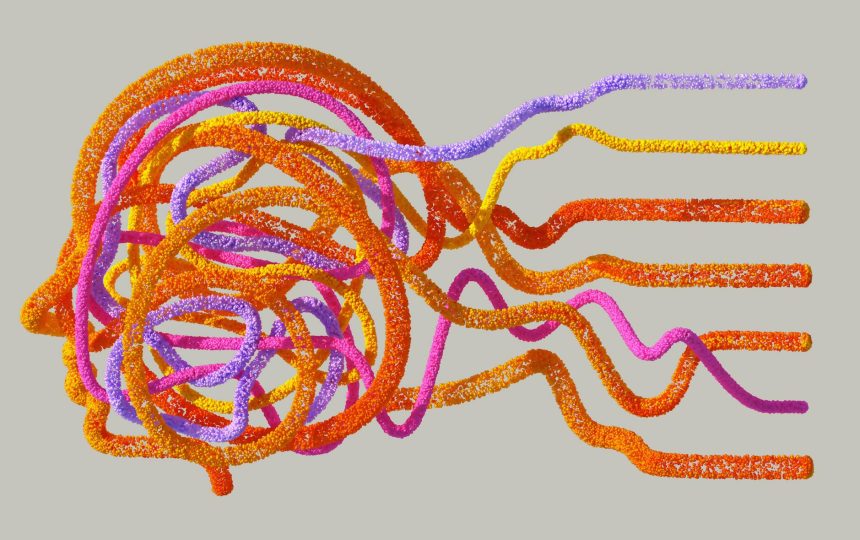slavoj-zizek-philosophy
Slavoj Žižek’s Philosophy: Unpacking 7 Radical Modern Insights
Few contemporary thinkers provoke, challenge, and dissect our modern world quite like Slavoj Žižek. This Slovenian philosopher, cultural critic, and psychoanalyst has carved a unique niche, fearlessly tackling everything from the most abstract theoretical concepts to the most pressing social issues. His distinctive approach, often characterized by a blend of Hegelian philosophy, Lacanian psychoanalysis, and Marxist critique, offers a fresh, often unsettling, perspective on reality itself.
But what truly defines Slavoj Žižek’s philosophy? It’s a relentless quest to expose the hidden ideologies that shape our lives, urging us to confront the uncomfortable truths beneath the surface. He doesn’t just analyze; he actively seeks to provoke a shift in our understanding, challenging us to think beyond conventional wisdom. By engaging with his ideas, we can begin to unpack the complex layers of contemporary existence, from our inner desires to global power structures.
Exploring the Depths of Slavoj Žižek’s Philosophy
Žižek’s intellectual landscape is vast, drawing connections between seemingly disparate fields. He navigates the murky waters of human experience, revealing how our deepest desires, fears, and societal structures are intertwined. His work acts as a critical mirror, reflecting the absurdities and contradictions inherent in our times.
Deconstructing Reality: Quantum Mechanics and Ideology
Žižek frequently probes the intersection of science and philosophy, particularly through the lens of quantum mechanics. He isn’t a physicist, but he uses the unsettling nature of quantum reality – its inherent uncertainty and observer dependence – as a metaphor for the ideological structures that govern our perception. For Žižek, just as quantum particles defy classical logic, our social realities are often built upon foundational contradictions we prefer to ignore. He argues that even our understanding of objective reality is filtered through ideological lenses, making the “real” itself a subject of philosophical scrutiny.
This perspective extends to how we understand knowledge itself. Žižek suggests that the very act of knowing something often changes it, much like in quantum observation. This has profound implications for how we approach complex social and political problems, reminding us that there’s no neutral ground from which to observe.
The Human Condition: Love, Sex, and Societal Norms
When Žižek discusses topics like love and ideal sex, he strips away romanticized notions to reveal their underlying ideological frameworks. For him, love is not merely an emotion but a radical act that disrupts the established order. It’s a commitment to an unconditional other, a defiance of the transactional logic of consumer society. Ideal sex, in his view, is less about physical perfection and more about the symbolic disruption of the ego, a momentary collapse of individual boundaries that exposes our fundamental incompleteness.
He critically examines how societal norms dictate our desires, often leading us to pursue what we think we “should” want rather than what we truly desire. This often results in a profound sense of dissatisfaction, as our deepest longings remain unaddressed by superficial solutions.
Žižek’s Lens on Modernity: AI, Me Too, and Work
Our rapidly evolving world presents new challenges and ethical dilemmas. Žižek’s work offers a potent framework for understanding these shifts, from technological advancements to cultural movements.
Navigating the Digital Age: AI and Consciousness
The rise of artificial intelligence (AI) is a central concern for Žižek. He doesn’t merely fear a dystopian future; instead, he questions how AI forces us to redefine human consciousness and our very notion of what it means to be human. For him, the true threat isn’t that AI will become too human, but that we might become too machine-like in our interactions and thought processes, reducing complex human experience to algorithmic patterns. He emphasizes that the philosophical implications of AI far outweigh the technical ones, compelling us to reflect on our unique subjective experience.
Consider the following aspects of AI through Žižek’s perspective:
- The illusion of choice in algorithms.
- How AI reflects and amplifies existing ideologies.
- The potential for AI to reconfigure our understanding of desire and fantasy.
Social Reckoning: Me Too and Cultural Shifts
The Me Too movement represents a significant cultural shift, and Žižek approaches it with his characteristic dialectical rigor. While acknowledging its vital importance in exposing systemic abuse, he also cautions against the potential for what he calls “moralizing hysteria” or a new form of puritanism that might inadvertently suppress genuine desire and complexity in human relationships. His analysis aims to move beyond simple condemnation or celebration, seeking to understand the deeper societal anxieties and power dynamics that the movement both reveals and, perhaps, inadvertently reinforces. He pushes us to question how such movements transform not just laws, but the very fabric of our social interactions.
The Paradox of Productivity: Workaholism and Stupidity
Žižek’s critique of contemporary capitalism often turns to the phenomena of workaholism and stupidity. He argues that the relentless pursuit of productivity, often lauded as a virtue, can lead to a form of “active stupidity” – a refusal to genuinely think or question the system. Workaholism, then, isn’t just an addiction to work; it’s an ideological escape from confronting deeper existential questions or societal contradictions. It becomes a way to avoid true freedom and responsibility, maintaining the status quo through constant, often meaningless, activity.
This “stupidity” is not a lack of intelligence but a deliberate blindness to systemic issues, a comfort in the familiar despite its inherent flaws. It’s a symptom of a society that prioritizes efficiency over critical thought.
Beyond the West: Lessons from Inca Society
Žižek’s intellectual curiosity extends globally, often drawing lessons from unexpected sources. His brief yet insightful references to societies like the Incas serve a specific philosophical purpose.
Ancient Wisdom, Modern Relevance
When Žižek touches upon Inca society, it’s not simply an anthropological observation. He uses such examples to highlight alternative social organizations and belief systems that challenge our Western-centric assumptions about progress, individuality, and power. The Inca’s complex societal structure, their relationship with nature, and their unique forms of communal organization provide a stark contrast to modern capitalist societies. This allows him to demonstrate that our current ideological frameworks are not universal or inevitable, opening up space to imagine different futures and critique the “naturalness” of our own systems. It’s about showing that other worlds are, and were, possible.
For more on Žižek’s broader philosophical context, you can consult the Stanford Encyclopedia of Philosophy’s entry on Slavoj Žižek. Understanding these historical alternatives is crucial for a comprehensive critique of present-day ideology.
Why Slavoj Žižek’s Philosophy Matters Today
Žižek’s enduring relevance lies in his capacity to articulate the anxieties and contradictions of our time with unparalleled intellectual rigor and wit. He forces us to confront uncomfortable truths, urging us to look beyond superficial solutions and engage with the underlying ideological structures that shape our lives. His work is a powerful antidote to complacency.
The Enduring Purpose of Philosophical Inquiry
Ultimately, for Žižek, the purpose of philosophy is not to offer comforting answers but to relentlessly question, to disrupt, and to provoke. It is a tool for critical intervention, pushing us to identify and challenge the hidden assumptions that govern our thoughts and actions. Philosophy, in his view, is the ongoing struggle to achieve genuine freedom by understanding the very mechanisms that constrain us. It demands intellectual courage and a willingness to embrace the unsettling nature of truth.
Žižek’s impact is significant because he compels us to engage with big questions, even if the answers are elusive or uncomfortable. His insights provide a framework for navigating a world saturated with information yet often starved of genuine understanding. He reminds us that true intellectual work involves a constant dialectical struggle, a willingness to embrace paradox and contradiction as pathways to deeper insight.
To delve deeper into the nature of critical thought and its role in society, an excellent resource is The Internet Encyclopedia of Philosophy on Critical Theory.
Conclusion
Slavoj Žižek’s philosophy is a vibrant, often chaotic, intellectual journey through the most perplexing aspects of human existence and modern society. From the quantum realm to ancient civilizations, from the intricacies of love to the impact of AI, he offers a unique and challenging perspective. He consistently reveals the ideological underpinnings of our world, compelling us to think more deeply about what we believe, why we believe it, and what it truly means to be human in an increasingly complex age.
What are your thoughts on Žižek’s provocative insights? Join the conversation and share your perspective in the comments below!
© 2025 thebossmind.com
Dive deep into Slavoj Žižek’s philosophy, exploring his radical insights on quantum mechanics, AI, love, Me Too, and the true purpose of thought in our complex world.
Featured image provided by Pexels — photo by Google DeepMind







